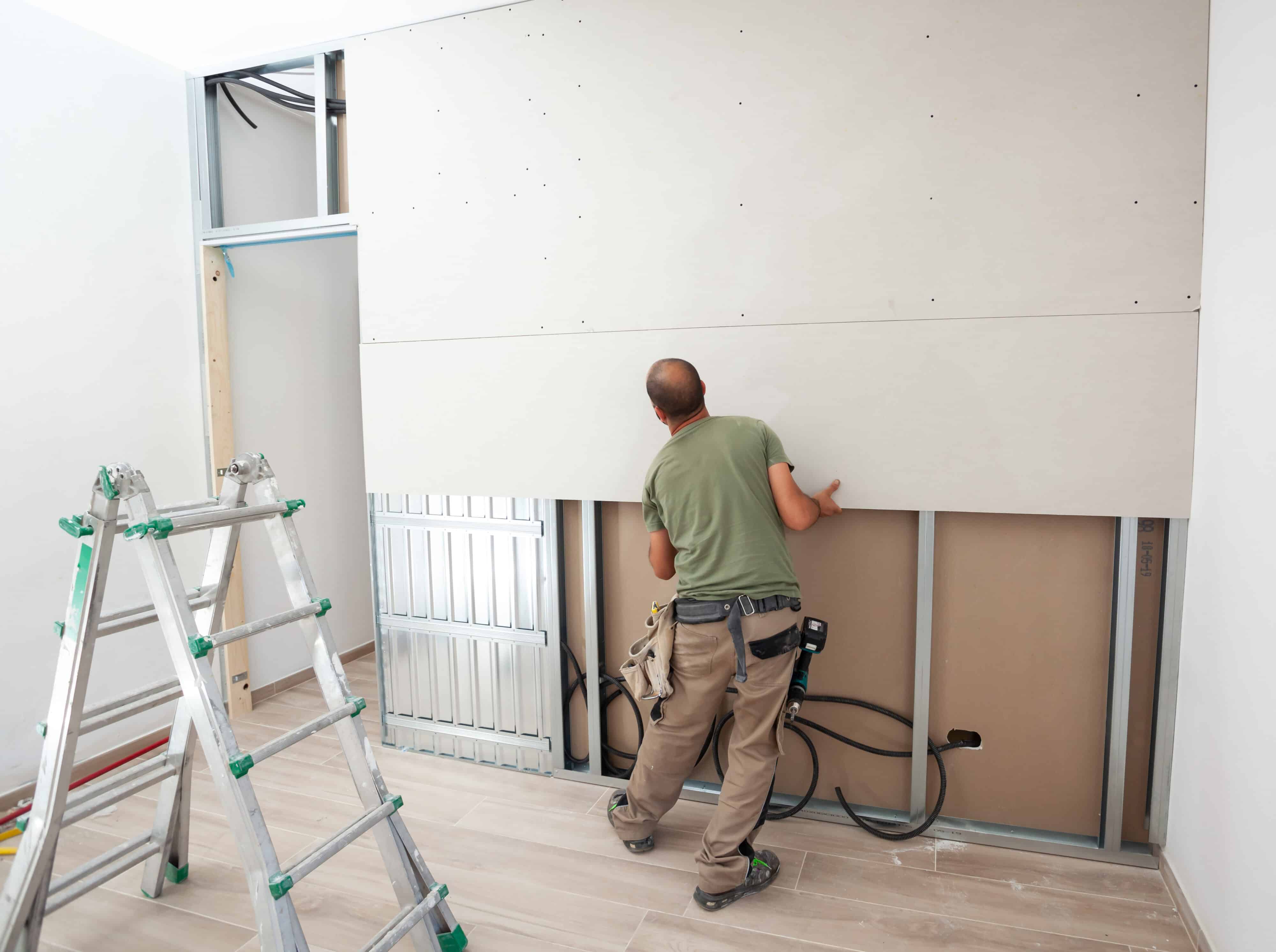How Much Does it Cost to Finish a Basement?

Do you dream of a finished basement that you can relax and hang out in? Or maybe even rent out for extra income? Maybe your dream includes a game room with a pool table, or a wet bar and an extra seating area for entertaining, or maybe your family is simply outgrowing your home as-is and you could use the extra square footage. Whatever your dream basement entails, even if you’re just exploring the idea of refinishing your basement to increase your home’s value, don’t let feeling overwhelmed by financing options stop you from making your dream a reality. Let Acorn help you find basement finishing financing that works for you.
Is finishing a basement worth the cost?
There are many reasons why finishing your basement is worth the cost, whether you’re selling your home in the near future or plan to stay in it long term. Aside from adding to the resale value of your home, finishing out your basement really broadens the pool of prospective buyers, as a finished basement offers much more living space making it appealing to larger families and people who like to entertain.
If you’re already in your forever home, finishing your basement could mean more space for you hobbies, entertaining, or expanding your own family. There’s not much more that makes a house feel like “home” than a cozy retreat below your main living areas. Additionally, a safe and comfortable living space below ground level offers reassurance in the event of a natural disaster like a tornado. That sigh of relief alone could make finishing your basement worth it for your family.
Keep reading to learn everything you need to know about finishing your basement, including how you can afford it.
What are the pros and cons of basement finishing costs?
Extra living space, higher home value, fixed monthly payments, and room for activities all sound great, but it’s important to consider the cons to basement finishing costs as well. These might include:
- New monthly payments
- Interest and fees
- Negative impact on your credit score if you fail to make payments on time
- Possibly unveiling unforeseen issues and expenses as construction progresses
How much does it cost to finish a basement?
Finishing a basement will likely cost in the $4,700 and $41,000 range, and most projects will average around $22,850 from start to finish. If that gives you a bit of sticker shock, keep the value to your home you are adding in mind. Finishing a basement is, no doubt, an expensive project – but your resale value and comfortability are important factors to consider too.
There are many contributors to the total cost of finishing your basement, but here are some common expenses:
- Waterproofing: This is essential when finishing your basement. Without proper waterproofing, all your hard work could be lost to mold or wood rot. This is not an area you’ll want to cut corners on.
- Plumbing: This will apply if you plan to add a bathroom, wash area, or wet bar to your basement and plumbing costs can vary widely depending on what you plan to add. Aside from actual plumbing installation costs, building out a bathroom will be a large portion of your remodel budget.
- Flooring: With options from laminate to luxurious spanish tiles, flooring costs can be minimal or astronomical. This is one area of your project that can make or break a budget.
- Drywall: Thickness of your drywall and labor costs will contribute to how much you can expect to shell out to get those basement walls up.
Additional costs for electricity, permits, and labor will be situationally dependent.
What should you consider before finishing a basement?
Having realistic expectations before embarking on any project can make or break the experience. There are some things to consider before solidifying any plans or budget.
- Your DIY capabilities: While anything electrical, or plumbing related should be left to the experts, there are still many areas you may be able to save on labor costs if you have the time and abilities to put in the elbow grease. Drywall, painting, framing, and flooring may be within the realm of possibilities for DIYers with a couple projects under their belts, just be sure to line up the proper permits.
- Light sources: If windows and doors need to be dug out or cut to allow for natural light, you’ll want that to be step one of your project. If you don’t plan for windows, consider what type of lighting sources you will use and map out where you’ll want to add them.
- Evaporate any water damage worries: Along with waterproofing your finished basement with vapor retardant and breathable insulation, you’ll also want to ensure any water runoff from your roof is properly directed away from your home. Pooling water at ground level against the outside of your home could make its way down into your pretty new basement, leaving you with mold or rot.
- HVAC capabilities: Consider whether your current system can handle the workload of the additional square footage, or if you’ll need an upgrade.
- Emergency exits: Specifications may be made through your local building codes regarding egress windows or exterior access doors.
Does finishing a basement increase home value?
With an average ROI of 70%-75%, selling your home with a newly finished basement can return most of your investment and help your house fly off the market. In most cases, a fully finished basement can be added to the total square footage of your home, increasing its overall value.
Is it cheaper to finish a basement or add on?
If you’re looking to add additional square footage but are torn between finishing your basement or building an add on, you’re probably wondering which route would be less expensive. In most cases, finishing your basement will be the cheaper option. This is mainly because no additional foundation needs to be poured before building, minimal framework is usually necessary, and there will usually be less “red tape” in the form of building permits to obtain and codes to follow. However, it is important to consider the circumstances specific to your situation such as if your basement roof needs to be raised considerably, the amount of additional square footage you’re looking to acquire, and the overall condition of your basement.
What is the most expensive part of finishing a basement?
When mapping out your budget, you can expect your floors to account for roughly 15% of your total budget. To cut costs on your basement flooring, you can map out an open concept and opt for carpet versus luxury vinyl or tile. If you’re a pro DIY’er, you may be able to install your flooring yourself to save on labor costs as well.
Remove the barrier between finishing your basement and not finishing your basement, which for most is the cost. At Acorn Finance you can unlock home improvement loan offers that don’t require collateral. Our lending partners can offer competitive rates as low as 4.49% and loans up to $100,000, both depending on credit score. Checking offers at Acorn Finance never impacts your credit score so leave your excuses at the door.
